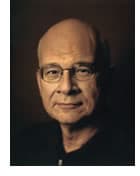Ministry in a Post-Christian Culture: An Interview with Tim Keller
My latest column at Christian Week:

Few people have influenced my ministry more than Tim Keller, pastor of Redeemer Presbyterian Church in New York. Keller is author of the New York Times bestseller The Reason for God and a newly released book, The Prodigal God. He is also cofounder of The Gospel Coalition.
Keller pastors in a post-Christian setting and shares some insights into some of the challenges we face in the Canadian context.
You’ve said that we need to change significantly—beyond ordinary approaches like new programs or staff—in order to meet the challenges of a post-Christian culture. What are some of the deeper issues the Church needs to face?
The first “deeper” issue is the one that Lloyd-Jones spoke of in his lectures on revivals. He heard people saying, in London in the 1950s, that the solution to the decreasing church attendance and Christian influence in society was better apologetics, more emphasis on church growth or, in the case of the mainline, adapting theology more to the modern mood.
But Lloyd-Jones, of course, believed the need was for spiritual revival. The trouble with naming this is that, unfortunately, in many evangelical circles, especially charismatic ones, “revival” is always said to be the cure-all for our ills. But Lloyd-Jones was thinking of the historic revivals and of a theology of revival of Jonathan Edwards. This means we must, as in all the revivals, recover the gospel of grace.
I agree with Lloyd-Jones on this, but this is a very unpopular view right now in much of the evangelical world. In parts of the Reformed world, Edwards’ view of revival is under attack as individualistic and inimical to the importance of the Church. Oddly, in the emerging church Edwards’ view of revival is unpopular for the same reasons, because of its emphasis on the “individualistic” views of substitutionary atonement, forensic justification and so on.
I think these attacks on (or indifference to) the importance of revival are very wrong. We live in a society in which revival is necessary. As Peter Berger shows in The Heretical Imperative in contemporary pluralistic societies, everyone who believes a faith has to make an individual choice to believe it. There are no longer inherited, authoritative faith traditions. Whether you raise a child Lutheran, Muslim or Baptist the child at some point will have to choose to make the faith of his parents his or her own. In other words, they will have to have a conversion experience.
When revival breaks out through a recovery of the gospel, three things happen:
- nominal church members realize they’d never been converted;
- sleepy, lethargic Christians are energized and renewed;
- outsider non-Christians are attracted into the beautified worship, community and lives of the converted and renewed church members.
That’s how it works. We need it.
The second deeper issue is the relationship of Christ to culture. The old Niebuhr book shows how the Church has never come to consensus on how it should relate to a culture that is sharply non- or anti-Christian. The evangelical Church is bitterly divided into groups that say, either we should change the culture “one heart at a time” by evangelizing individuals, or we should change the culture by penetrating the cultural institutions with Christians operating out of a biblical world-view.
Others say we will only affect the culture if the Church contextualizes—connects to people’s needs and concerns and serves the poor and needy—while still others say we shouldn’t be trying to change culture at all; we should just “be the Church,” because trying to change the culture inevitably corrupts the Church into the image of the culture.
Until we can break through these warring views and factions we are in trouble. Don Carson’s recent book Christ and Culture Revisited is a good starting point because he shows that each approach has a lot of biblical warrant, but each approach, taken as the exclusive one, is seriously imbalanced. I believe the different approaches are actually responding more to other parts of the Christian Church than they are to the world. They are defining themselves as being “not like those Christians over there” and so are falling into what Don calls “reductionisms.”
Part Two of this conversation with Tim Keller on effective ministry in a changing culture will be published in an upcoming issue (December 1).





